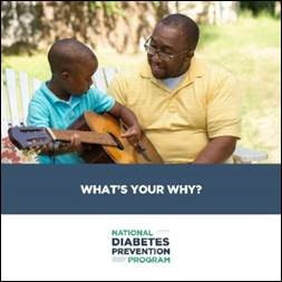|
There are many reasons to learn more about your health. To know where you stand. To be in control. To feel better. And it all starts with knowing if you’re at risk of developing type 2 diabetes. There’s an easy way to find out – by taking the quick and easy 1-minute, online prediabetes risk test: www.cdc.gov/diabetes/risktest.
Why learn your risk? An estimated 84 million American adults – or 1 in 3 – have prediabetes. Prediabetes means your blood sugar levels are higher than normal, but not high enough yet for a diabetes diagnosis. You might be at risk of prediabetes if you:
The good news is that prediabetes can often be reversed with lifestyle changes such as eating healthier, increasing physical activity, and learning how to manage stress. If your results show you’re at high risk for prediabetes, schedule an appointment with your doctor to learn how to lower your chances of getting type 2 diabetes. You have important reasons to stay healthy – so you can continue to do the things you love with the people you love. So what’s your why? |
The National Center for Farmworker HealthImproving health care access for one of America's most vulnerable populations Archives
March 2024
Categories
All
|


 RSS Feed
RSS Feed